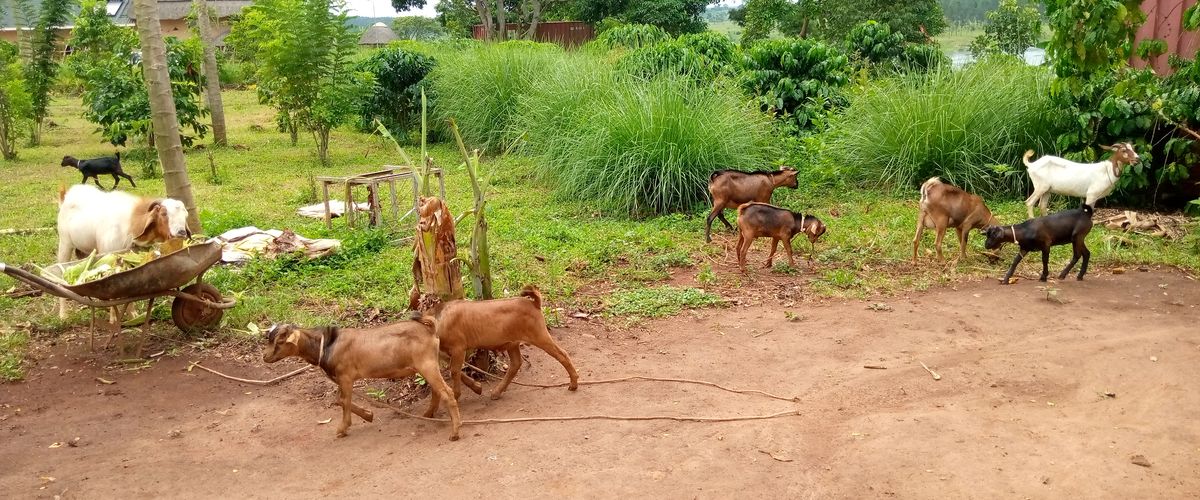
Basing on the size of our organic coffee plantation, we need to constantly innovate to maintain the sustainability of the farm. We find an opportunity to utilize farm organic wastes and residues commonly found within the farm. Hence, it is not uncommon to find the set up of a functional unit of a dairy, piggery, poultry, fishery etc inside the plantation.
These units in tandem tend to take care of more than 60 per cent fertilizer needs of the farm. Creation of wealth from organic wastes brings about a holistic healing within the farm and helps maintain a perfect balance between the beneficial and harmful micro and macro fauna and also between man and nature. It is something of a live and let live approach. On the other hand, accumulation of organic wastes results in the build up of complex biologically stable toxic molecules which can cause serious health hazards and environmental pollution.
It is a matter of great satisfaction that we and our members are enlightened with the technology of converting organic wastes into precious manure and there by maintain the equilibrium of nature. In fact, a visit our coffee demonstration garden, will reveal a story of a biodynamic farm.
Farm wastes, cattle dung, forest litter, goats, poultry, sheep, piggery waste, fish toppings, biogas slurry, green manures and so on are converted into energy rich nutrients which are easily assimilated by coffee plants. Coffee bush is a perennial plant and requires a constant supply of nutrients throughout the year. Recycling organic wastes and addition of organic manures is the right answer to significantly fulfill the plants nutritional requirements from time to time.
The presence of a medium herd of goats and sheep on our organic farm has ensured abundant quantities of the above mentioned organic manure to be available.
The manure from sheep and goat is particularly helpful in quick decomposition of organic residues because of their small size and large surface area. The microbial activity is enhanced resulting in quick breakdown of residues into energy rich nutrients. The nitrogen content is almost 2.75%.
Poultry droppings are a peculiar organic waste because both urine and solid excreta are excreted together. Hence there is no loss of nitrogen from urine.
These poultry droppings make excellent organic manure because of their excellent C:N ratio as well as high amounts of phosphorus and potash. The manure is also rich in uric acids. Generally for every 25 tons of cattle dung, 7 tons of poultry droppings are mixed along with straw and green manure, composted and broadcasted in the field.
we emphasize the cardinal importance that human beings should be part of nature and not above it. Our Farmers living in villages are bubbling with old ideas which work magnificently on the farm, without depleting the balance of natural resources. Crop productivity throughout the world relies on the top six inches layer of fertile soil.
If organic wastes are properly recycled or applied at the right time, it not only enhances the fertility status of the soil, but converts organic wastes and returns it back to the farm in a value added form. This is the least we can give back nature. Is it not true that the greatness of nature is in its simplicity? It is only man that has complicated nature and exploited it. We are locked in an economic race. The way, nonrenewable energy resources are plundered, the world may soon see shortages of food and water.
So it is worthwhile to go back to centuries of traditions practiced by our great ancestors and analyze the hidden secrets buried within. Reapplying these principles and maintaining a sustainable world is the only gift that we can give future generations.